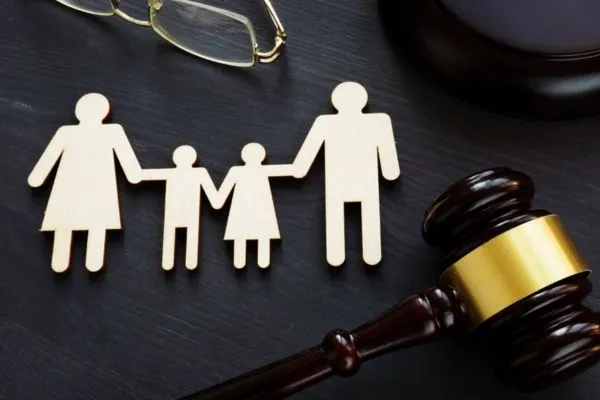Domestic violence often leaves a profound mark on families, and its effects extend far beyond the immediate victims. In Washington, the presence of domestic violence can significantly influence child custody decisions, as courts prioritize the safety and well-being of children above all else. Understanding how these cases are handled is crucial for anyone navigating the legal system.
Judges in Washington carefully examine allegations of abuse when determining custody arrangements, aiming to shield children from potentially harmful environments. This process can be complex, as it involves weighing evidence, assessing parental fitness, and ensuring the child’s best interests remain at the forefront. For those involved, the stakes are incredibly high, making it essential to grasp how domestic violence impacts these decisions.
How Domestic Violence Influences Custody Decisions
Domestic violence plays a critical role in determining custody outcomes in Washington. Courts assess the safety and stability of each parent’s household to protect children from potential harm. Judges consider evidence of abuse, including police reports, protection orders, or witness statements, when evaluating custody arrangements.
A parent’s history of violence can impact their custodial rights. Washington law prioritizes the child’s best interests, which often means restricting or supervising visitation for an abusive parent. Courts may mandate intervention programs, such as counseling or anger management, to address the parent’s behavior.
The presence of domestic violence shifts the focus to the non-abusive parent’s ability to provide a secure environment. Legal guidance from professionals, including firms like Hodgson Law Office, often aids parents in presenting evidence and navigating the complex legal procedures associated with domestic violence and child custody disputes.
Legal Steps to Protect Children in Dangerous Situations
Courts in Washington prioritize child safety in cases involving domestic violence. Specific legal steps ensure protection for children exposed to dangerous circumstances.
- Filing for Protection Orders
Parents or guardians can petition the court for a protection order if domestic violence jeopardizes a child’s safety. These orders may include temporary custody changes or visitation restrictions to safeguard the child. The court considers evidence, such as police reports, to determine the necessity of the order. - Requesting Emergency Custody
A parent concerned for a child’s immediate safety can seek emergency custody modifications. Judges evaluate claims and issue temporary orders if there’s substantial proof of harm due to domestic violence. These orders remain in effect until a full hearing occurs. - Mandating Supervised Visitation
In instances of documented abuse, courts often mandate supervised visitation for the abusive parent. This ensures contact occurs under controlled conditions. Supervised arrangements typically involve professional monitoring to ensure the child’s safety. - Involving Child Protection Services (CPS)
If allegations of domestic violence arise, CPS may investigate the situation to assess whether intervention is necessary. Their recommendations frequently inform court decisions during custody disputes. - Accessing Legal Counsel
Legal representation, such as from firms like Hodgson Law Office, helps affected parents navigate custody disputes involving domestic violence. Attorneys assist in presenting evidence, filing appropriate motions, and advocating for the child’s well-being throughout the legal process.
Every legal action taken focuses on preserving the child’s best interests while addressing the complexities of both domestic violence and child custody cases.

Evidence Needed to Support Custody Claims in Abuse Cases
Courts in Washington prioritize credible evidence when deciding custody in cases involving domestic violence. Documentation and testimony are critical to proving abuse and ensuring child safety.
- Police Reports and Court Records
Police reports provide verified accounts of domestic violence incidents. Court records, including restraining or protection orders, validate claims and illustrate a history of abuse. - Medical and Psychological Records
Medical records document injuries linked to abuse. Psychological evaluations and therapy notes highlight the emotional impact on the child and non-abusive parent. - Witness Testimonies
Statements from neighbors, family members, or professionals such as teachers provide supporting accounts of observed abuse or its effects on the child. - Communication Logs
Emails, text messages, and recorded calls showcasing violent behavior or threats strengthen abuse claims. These records offer direct insight into the perpetrator’s conduct. - Child Protection Services Reports
CPS investigations include findings and recommendations that inform courts about household safety and the child’s welfare. - Parental Behavior History
Evidence of prior violent or controlling behavior establishes patterns relevant to custody decisions. Courts consider these behaviors when assessing parental fitness.
Presenting a comprehensive body of evidence enhances credibility and aids in achieving outcomes aligned with the child’s best interests. Legal professionals, such as those at Hodgson Law Office, assist by collecting and presenting evidence effectively in domestic violence and child custody cases.
The Role of Protective Orders in Custody Disputes
Protective orders play a critical role in custody disputes involving domestic violence. These orders, issued by courts, aim to safeguard children and the non-abusive parent from further harm. When domestic violence allegations surface during custody proceedings, courts often use protective orders to establish immediate safety measures.
Protection orders may restrict the abusive parent’s contact with the child or the other parent. They can include provisions such as no-contact orders, temporary custody arrangements, or supervised visitations. Compliance with protective orders is closely monitored, influencing the court’s decisions regarding future custody arrangements.
In cases involving severe domestic violence, emergency protective orders may be issued without prior notice to the alleged offender. These orders ensure child safety until a formal hearing occurs. Legal representation, such as services provided by family law professionals like Hodgson Law Office, strengthens a parent’s ability to file and secure protective orders effectively.
Protective orders also provide courts with documented evidence of abuse. Judges review these orders to evaluate the severity and frequency of violence, which directly impacts custody decisions. By prioritizing safety through protective measures, courts uphold the child’s best interests while navigating the complexities of domestic violence and child custody disputes.
Ensuring a Safe Environment Through Legal Advocacy
Domestic violence significantly shapes child custody outcomes, making it essential for parents to prioritize safety and stability. Courts in Washington focus on protecting children from harm while ensuring their best interests remain central to every decision.
Legal advocacy plays a vital role in navigating these complex cases. From securing protective orders to presenting credible evidence, professional guidance helps parents build a strong case for a safe and nurturing environment. By leveraging legal resources and support, families can work toward custody arrangements that prioritize the well-being of the child above all else.

